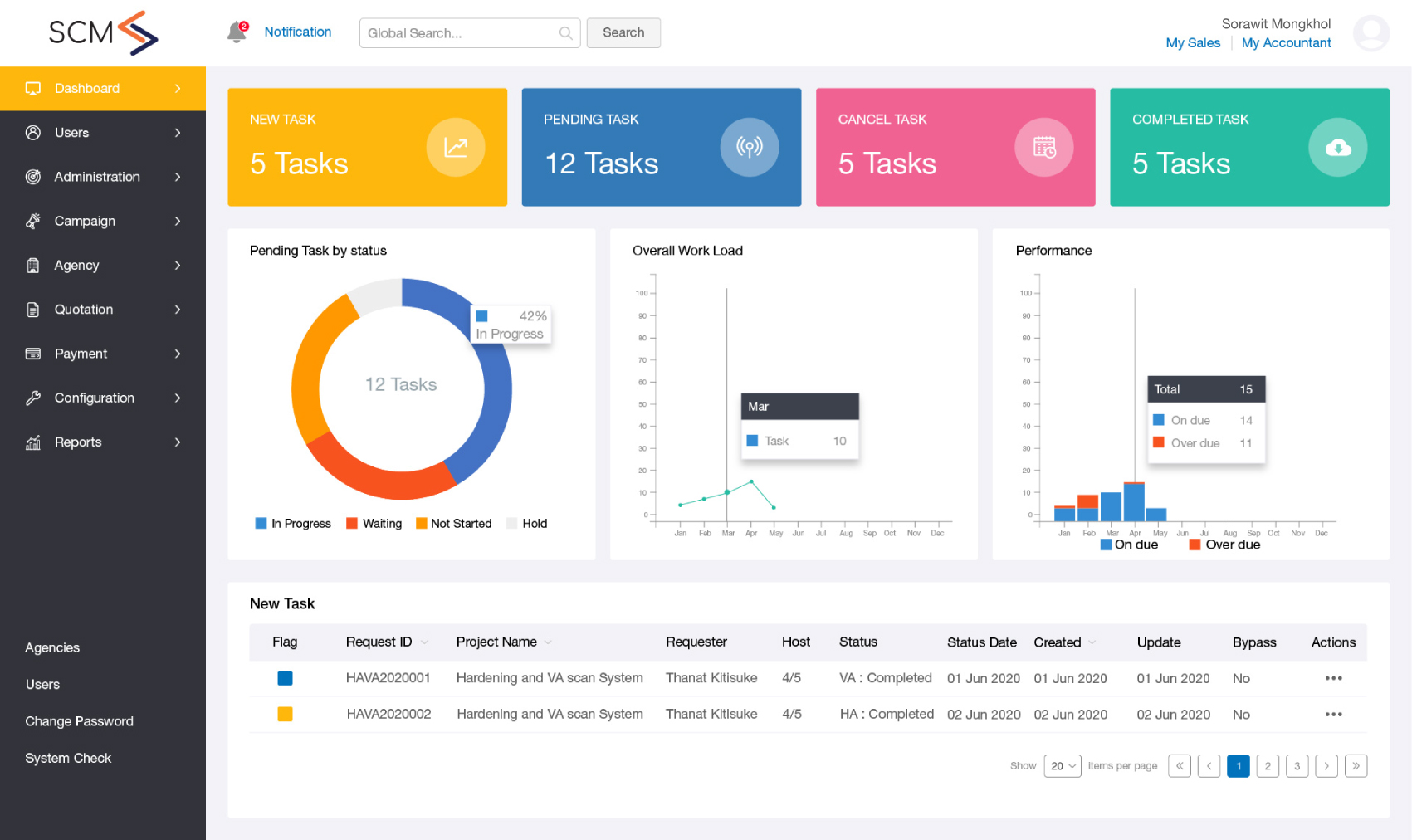In today’s competitive business landscape, customer relationship management (CRM) platforms have emerged as indispensable tools for organizations seeking to enhance customer engagement, streamline operations, and drive growth. This comprehensive guide will delve into the intricacies of CRM platforms, empowering you with the knowledge to harness their full potential and transform your business.
CRM platforms are software solutions that centralize and manage customer data, enabling businesses to gain a comprehensive view of their customers’ interactions, preferences, and behaviors. By leveraging this data, organizations can tailor personalized experiences, automate processes, and make informed decisions that drive customer loyalty and satisfaction.
CRM Platform Overview
A CRM platform, or Customer Relationship Management platform, is a software solution designed to manage and nurture customer relationships. It serves as a central hub for storing, organizing, and accessing customer data, interactions, and preferences.
Key components of a CRM platform include:
- Customer database
- Sales management tools
- Marketing automation tools
- Customer service tools
Implementing a CRM platform offers numerous benefits, including:
- Improved customer satisfaction
- Increased sales and revenue
- Enhanced operational efficiency
- Better decision-making
Types of CRM Platforms
CRM platforms are classified into different types based on their deployment model and architecture. The two main types are cloud-based CRM and on-premises CRM.
Cloud-based CRM
Cloud-based CRM platforms are hosted on remote servers and accessed via the internet. They offer several advantages, including:
- Accessibility:Accessible from anywhere with an internet connection.
- Scalability:Can be easily scaled up or down to meet changing business needs.
- Cost-effective:Typically offered on a subscription basis, eliminating the need for upfront hardware and software investments.
- Regular updates:Cloud-based platforms are continuously updated with the latest features and security patches.
Popular cloud-based CRM platforms include Salesforce, HubSpot, and Zoho CRM.
On-premises CRM
On-premises CRM platforms are installed on a company’s own servers and managed internally. They offer the following advantages:
- Control:Companies have complete control over their data and infrastructure.
- Customization:Can be customized to meet specific business requirements.
- Security:Data is stored on the company’s own servers, reducing the risk of external breaches.
However, on-premises CRM platforms require significant upfront investment and ongoing maintenance costs.
Examples of popular on-premises CRM platforms include Microsoft Dynamics 365 and Oracle Siebel CRM.
CRM Platform Features

CRM platforms offer a wide range of features designed to streamline customer interactions, enhance collaboration, and improve overall business efficiency. Core features include:
Contact Management
Centralized storage and organization of customer information, including contact details, demographics, and interaction history.
Sales Management
Tracking and managing sales opportunities, pipelines, and customer orders. Provides insights into sales performance and helps optimize sales processes.
Marketing Automation
Automating marketing campaigns, lead generation, and email marketing. Nurtures leads, segments customers, and personalizes marketing messages.
Customer Service, Crm platform
Managing customer inquiries, support tickets, and feedback. Provides a centralized platform for resolving customer issues and improving customer satisfaction.
Additional Features
To enhance CRM capabilities, platforms may offer additional features such as:
- Analytics and Reporting:Provides data-driven insights into customer behavior, sales performance, and marketing campaigns.
- Mobile Access:Enables access to CRM data and functionality from anywhere, on any device.
- Integration with Other Systems:Connects with other business applications, such as ERP and accounting systems, for seamless data exchange.
- Artificial Intelligence (AI):Automates tasks, provides predictive insights, and enhances customer engagement.
CRM Platform Implementation

Implementing a CRM platform involves several key steps, including planning, data migration and integration, user adoption, and ongoing support.
Effective planning is crucial to ensure a successful implementation. This includes defining clear goals, establishing a project timeline, and identifying the resources and stakeholders involved. Data migration and integration are also critical aspects of implementation, as they ensure that existing customer data is seamlessly transferred to the new CRM platform.
This process requires careful planning and execution to minimize data loss and maintain data integrity.
Best Practices for Data Migration and Integration
- Plan the migration process thoroughly, including identifying data sources, mapping data fields, and establishing a data cleansing strategy.
- Use data migration tools and techniques to automate the transfer of data, ensuring accuracy and efficiency.
- Test the migrated data thoroughly to verify its integrity and accuracy before going live.
User adoption and training are essential for ensuring that the CRM platform is effectively utilized by the organization. This involves providing comprehensive training to users, addressing their concerns, and offering ongoing support to facilitate a smooth transition.
Importance of User Adoption and Training
- Improved user adoption leads to increased productivity and efficiency.
- Proper training empowers users to maximize the functionality of the CRM platform, leading to better outcomes.
- Ongoing support ensures that users have the necessary resources to resolve issues and optimize their use of the platform.
CRM Platform Customization
CRM platforms can be customized to meet the specific needs of a business. This can involve modifying the platform’s user interface, adding new features, or integrating it with other software applications. Customization can improve the efficiency and effectiveness of a CRM platform, and can help businesses to gain a competitive advantage.
There are a number of different options for customizing a CRM platform. Some platforms offer built-in customization tools, while others require the use of third-party software. The level of customization that is possible will vary depending on the platform and the specific needs of the business.
Benefits of Customization
There are a number of benefits to customizing a CRM platform. These benefits include:
- Improved efficiency: A customized CRM platform can be tailored to the specific needs of a business, which can improve efficiency and productivity.
- Increased effectiveness: A customized CRM platform can help businesses to track and manage customer interactions more effectively, which can lead to increased sales and improved customer satisfaction.
- Competitive advantage: A customized CRM platform can give businesses a competitive advantage by providing them with the tools they need to better serve their customers.
Examples of Successful CRM Customization Projects
There are a number of successful examples of CRM customization projects. One example is the customization of Salesforce for the healthcare industry. Salesforce is a popular CRM platform that has been customized by a number of healthcare providers to meet their specific needs.
These customizations have helped healthcare providers to improve patient care, reduce costs, and increase efficiency.
Another example of a successful CRM customization project is the customization of Microsoft Dynamics CRM for the manufacturing industry. Microsoft Dynamics CRM is a popular CRM platform that has been customized by a number of manufacturers to meet their specific needs.
These customizations have helped manufacturers to improve production efficiency, reduce costs, and increase customer satisfaction.
CRM Platform Integrations

Integrating a CRM platform with other business systems is crucial for streamlining operations and maximizing efficiency. By connecting different systems, businesses can create a unified data environment that enables seamless data flow and eliminates manual processes.Common integration points include:
- Enterprise Resource Planning (ERP)systems for managing financial and operational data
- Marketing automationplatforms for automating marketing campaigns and tracking customer interactions
- E-commerceplatforms for managing online sales and customer orders
- Customer servicesystems for managing customer support interactions
- Social mediaplatforms for monitoring customer engagement and gathering feedback
Benefits of CRM Integrations
Improved data accuracy and consistency Integration eliminates data duplication and ensures that all systems have access to the same up-to-date information.
Increased efficiency Automation of processes and data sharing reduces manual tasks and saves time.
Enhanced customer experience A unified view of customer data allows businesses to provide personalized and consistent experiences across all touchpoints.
Improved decision-making Real-time access to data from multiple sources enables better decision-making and informed business strategies.
Challenges of CRM Integrations
Technical complexity Integrating different systems can be technically challenging, requiring specialized expertise and resources.
Data security Ensuring the security of sensitive customer data across multiple systems is crucial.
Cost Integration projects can be expensive, involving software licensing, implementation, and ongoing maintenance costs.
Change management Integrating new systems can disrupt existing workflows and require employee training and adoption.
CRM Platform Reporting and Analytics
CRM platforms provide robust reporting and analytics capabilities that empower businesses to gain valuable insights from their customer data. By analyzing CRM data, organizations can identify trends, patterns, and opportunities to improve decision-making, optimize processes, and enhance customer experiences.
CRM platforms offer a range of reporting options, including:
- Standard reports:Pre-built reports that provide insights into key CRM metrics, such as sales performance, customer satisfaction, and marketing campaign effectiveness.
- Custom reports:Reports that can be tailored to specific business needs and requirements.
- Dashboards:Visual representations of key CRM metrics that provide an at-a-glance overview of business performance.
CRM data can be used to generate a wide variety of insights, including:
- Customer behavior:Identify patterns and trends in customer behavior, such as purchase history, website engagement, and support interactions.
- Sales performance:Track sales metrics, such as revenue, conversion rates, and average deal size, to identify areas for improvement.
- Marketing effectiveness:Measure the effectiveness of marketing campaigns and identify areas for optimization.
- Customer satisfaction:Monitor customer feedback and identify areas where customer experience can be improved.
By leveraging the reporting and analytics capabilities of a CRM platform, businesses can gain a deeper understanding of their customers, improve decision-making, and drive business growth.
Examples of Valuable CRM Reports and Dashboards
Some examples of valuable CRM reports and dashboards include:
- Sales pipeline report:Provides a visual representation of the sales pipeline, including the number of leads, opportunities, and closed deals.
- Customer churn report:Identifies customers who have stopped doing business with the company and provides insights into the reasons for churn.
- Marketing campaign performance dashboard:Tracks the performance of marketing campaigns and provides insights into which campaigns are most effective.
- Customer satisfaction dashboard:Provides an overview of customer satisfaction levels and identifies areas where customer experience can be improved.
These are just a few examples of the many valuable reports and dashboards that can be generated using a CRM platform. By leveraging the reporting and analytics capabilities of a CRM, businesses can gain a deeper understanding of their customers, improve decision-making, and drive business growth.
CRM Platform Trends
CRM platforms are constantly evolving to meet the changing needs of businesses. Here are some of the emerging trends in CRM platform technology:
Increased adoption of artificial intelligence (AI) and machine learning (ML): AI and ML are being used to automate tasks, improve customer service, and provide personalized experiences. For example, AI-powered chatbots can answer customer questions and resolve issues 24/7. ML algorithms can be used to identify patterns in customer data and predict future behavior.
Innovative Features and Capabilities
- Omnichannel customer engagement: CRM platforms are increasingly offering omnichannel capabilities, which allow businesses to interact with customers across multiple channels, such as phone, email, chat, and social media. This provides a more seamless and consistent customer experience.
- Integration with other business systems: CRM platforms are being integrated with other business systems, such as ERP, marketing automation, and e-commerce platforms. This allows businesses to have a single view of their customers and to automate processes across different systems.
- Real-time data analytics: CRM platforms are now offering real-time data analytics, which allows businesses to track key metrics and make informed decisions in real time. For example, businesses can track customer behavior on their website and use this data to personalize marketing campaigns.
The Future of CRM Platforms
The future of CRM platforms is bright. As AI and ML continue to develop, CRM platforms will become even more powerful and sophisticated. Businesses will be able to use CRM platforms to automate more tasks, improve customer service, and gain a deeper understanding of their customers.
CRM platforms will also become more integrated with other business systems, such as ERP, marketing automation, and e-commerce platforms. This will allow businesses to have a single view of their customers and to automate processes across different systems.
Finally, CRM platforms will become more affordable and accessible to small businesses. This will allow more businesses to take advantage of the benefits of CRM technology.
Final Conclusion

In conclusion, CRM platforms are essential for businesses looking to elevate their customer interactions, optimize operations, and gain a competitive edge. By embracing the capabilities of these powerful tools, organizations can foster stronger customer relationships, increase revenue, and position themselves for long-term success in the digital age.
 Lingkupruang.biz.id The Ultimate Guide to CRM Mastery
Lingkupruang.biz.id The Ultimate Guide to CRM Mastery